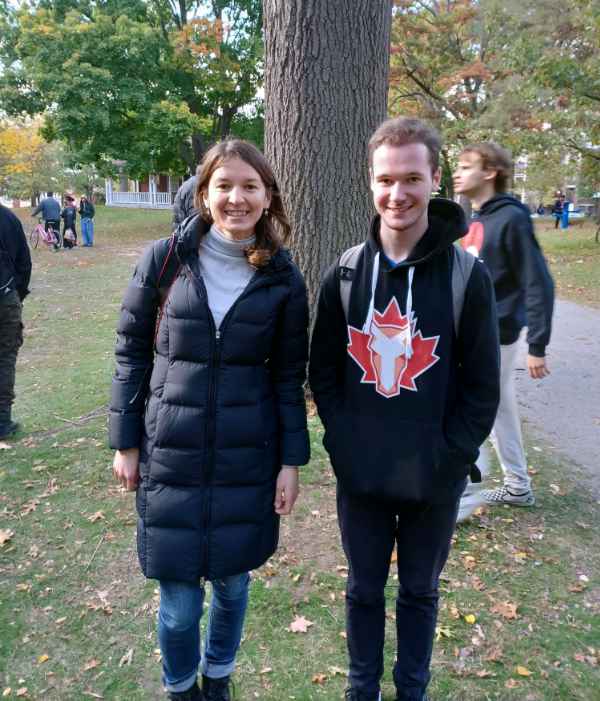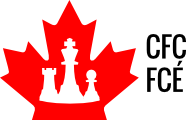IM Shawn Rodrigue-Lemieux On His Prep, His Talismans, and Keys to Success
— — Olga Mushtaler, Brian MacLeod
(Original was posted on chess.com)
It has been a spectacular year for Montreal’s Shawn Rodrigue-Lemieux. He steamrolled his competition in an international tournament with a 3037 performance rating, then in September he won the World Youth Chess Championship in Romania. In this question-and-answer session, the International Master shares his thoughts on his career, his ambition to become a grandmaster, and his approach to chess studies - from the intriguing a-pawn thrust on the first move to his games with Grandmaster Hikaru Nakamura.
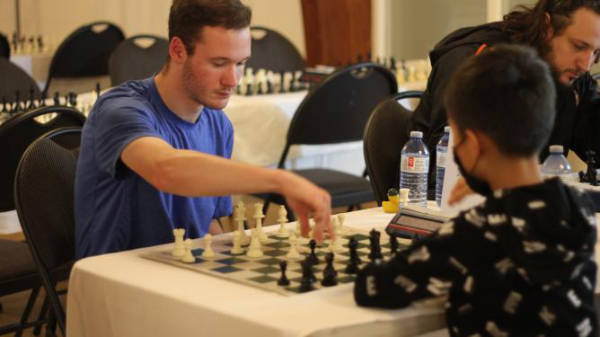
Q: How did you start playing chess?
A: I started playing chess in grade 1, when I saw some of my friends playing against each other. I didn’t know the rules back then, so I signed up for extracurricular chess classes at school!
Q: Winning the World Youth Chess Championship was incredible. How did it affect your life?
A: Getting a lot of support from so many people after the tournament felt very special, and I felt that I had accomplished something that I never thought I could achieve. It made me realize that I should be more confident in my abilities as a player.
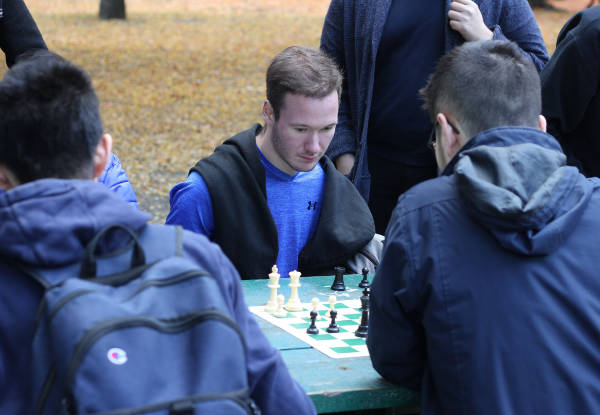
Q: What is the best game you’ve ever played?
A: I would say that my game against Nogerbek Kazybek in round 9 at the World Youth Championship was the most satisfying one, since it was probably the deciding game of the tournament. I wasn’t too well prepared in the opening but still managed to find some nice ideas in a very complex position, with a huge time disadvantage.
Q: You’ve chosen law as your major at Collège de Maisonneuve. What connection do you see between law and chess?
A: I think there’s definitely a lot of memorization and discipline required in those two fields, and they’re both very competitive!
Q: You played GM Hikaru Nakamura in Toronto back in October this year. You, GM Evgeny Bareev and CM Koosha Jaferian were the only three able to secure a draw out of about 200 challengers that played him in 3 days. What can you say about that game against Hikaru?
A: It obviously felt very good to make a draw against him. I knew that opening line pretty well, and during our game I actually remembered that he made a quick draw against a Greek GM with the Black pieces in the same line, at the 2021 World Rapid Championship. When he chose this variation in the Catalan, I was pretty happy, since it’s usually considered to be a drawish line, which gave me better chances. He surprised me with a move that I had never seen before, but I was able to find a solid response. I most likely had a better position out of the opening, but decided to go into a drawn endgame and secure the half-point!
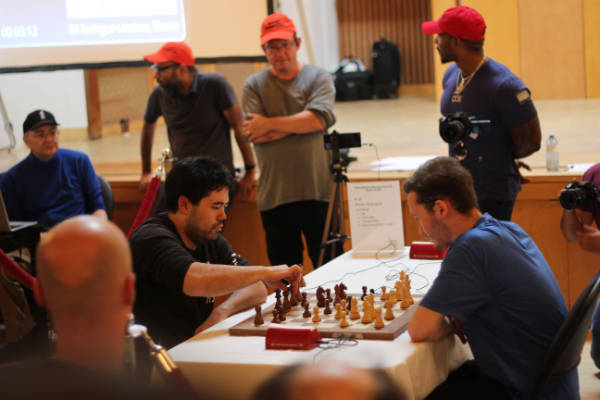
Q: In your blitz game against Hikaru you played 1. a3, which turned into a sharp, tactical game. Is that your new secret weapon or were you just having a little fun?
A: It’s actually a move that I’ve been playing for years, especially in classical chess. I’ve been playing it more and more in classical, even in important games (such as round 7 at the World Youth Championship). It usually throws the opponent off, but Hikaru didn’t seem to be affected by that too much. He’s played it many times online himself, and it’s very hard to throw him off, unless your name is Magnus Carlsen! I actually beat Hikaru with 1.a3 in our last online game, so I wanted to try it again.
Q: What effect did Covid have on your chess practice?
A: Surprisingly, I think COVID really helped me with chess. When school was cancelled for a while, I had nothing to do at home, since there were no tournaments either. I decided to spend a lot of time studying chess, and I was able to stay disciplined for a few months, spending around 8 hours studying chess almost every day. I had never spent so much time studying before, and it definitely helped me improve.
Q: Bible has 10 commandments. If you were to write 3 Commandments for chess players, what would they be?
A: Practice, be competitive and enjoy the game.
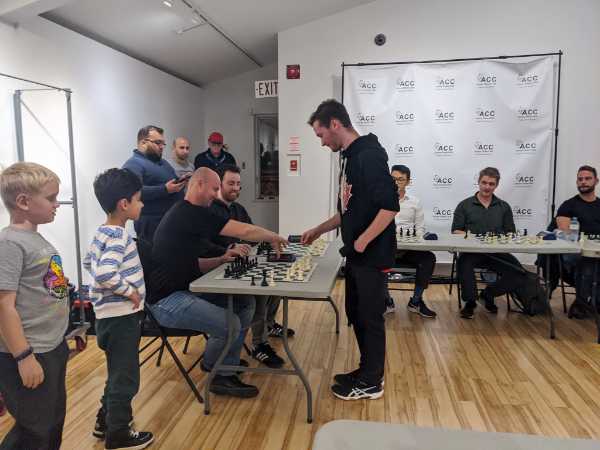
Q: Who are your chess icons? Are there any streamers that you watch frequently?
A: My favorite player is definitely Magnus Carlsen. I enjoy watching him play, I think he’s very impressive. The way he plays certain positions is extremely instructive, and I appreciate his fighting spirit as well as his creativity on the board. I never really watch live streams, but I love watching GothamChess on YouTube. His Guess The Elo series, where he tries to guess his subscribers’ rating after watching one of their games, always makes me laugh.
Q: What is your favourite chess book?
A: Dvoretsky’s Endgame Manual, even though I haven’t fully read it, is definitely my favorite book. I bring it to almost every tournament, mostly as a superstition.
Q: What other sports do you play besides chess?
A: I used to play tennis and table tennis regularly, but recently I haven’t had too much time to play, since I’ve been busy with school and chess tournaments.
Q: What are your chess goals for the future?
A: I’d like to become a Grandmaster as soon as possible, and eventually reach a rating of 2600. Beating Magnus Carlsen would be my ultimate goal, and I hope that I get the chance to play against him one day.
Q: You played in a tournament earlier this year and won nine out of nine with a 3037 performance rating. What do you think was the secret to such remarkable success in that tournament?
A: Going to McDonald’s twice every day, as well as watching Guess The Elo between every round, was definitely the secret! Also, I believe that my playing style works very well against lower-rated players, since I like to play equal positions and put pressure on my opponents. It worked very well in that tournament!
Q: What do you use to study? Stockfish, Lichess, Chess.com? Do you enjoy speed and rapid chess, or is your preference for classical time controls?
A: I use ChessBase to study, with the help of Stockfish, MegaDatabase and sometimes books or Chessable courses. I also use Lichess and Chess.com a lot to play online, they’re both great websites. I really enjoy speed chess, especially hyperbullet, where both players have 30 seconds each for the entire game. I used to play a lot of ultrabullet, where both players only have 15 seconds, but I’m not fast enough for that anymore!
Q: Do you feel it takes a lot of tournament play to improve, or can you make big strides with online play and studying, given the restraints that COVID placed on chess?
A: I think that it’s important to have a mix of all these things in order to improve. Playing tournaments is important to gain experience and practice, but studying is also necessary, in order to learn new ideas and learn from your previous mistakes. Playing online, especially faster time controls, can help with tactical vision and pattern recognition. Speed chess also allows players to become better under time pressure, which is an important skill to have in classical chess.
Q: Do you like to try out the offbeat openings, such as the Hippo?
A: I don’t play the Hippo, but I do play a lot of offbeat openings, such as 1.a3. I’ve been using it a lot recently, and I’ve had satisfying results with it. As Black, I recently started playing 1…a6, which I actually like a lot! It avoids theoretical lines, and it always throws off the opponent.
Q: You became world jr. chess champion in Romania in September with a spectacular 9 points in 11 games. The article in the Montreal Gazette said you were surprised by that achievement. What worked for you? What made everything click? Is there something you learned from that success?
A: I had great support from all my Canadian teammates while we were in Romania, and there was a very enjoyable team spirit while we were there. I think that this helped my performance, since I was always in a pretty good, with very few distractions, such as homework. During tournaments, I always avoid doing any schoolwork in order to stay focused on the tournament. That tournament made me learn that anything is possible if you put your mind to it and if you work hard enough. I also realized that it’s important to think about one game at a time instead of focusing on the next game.
